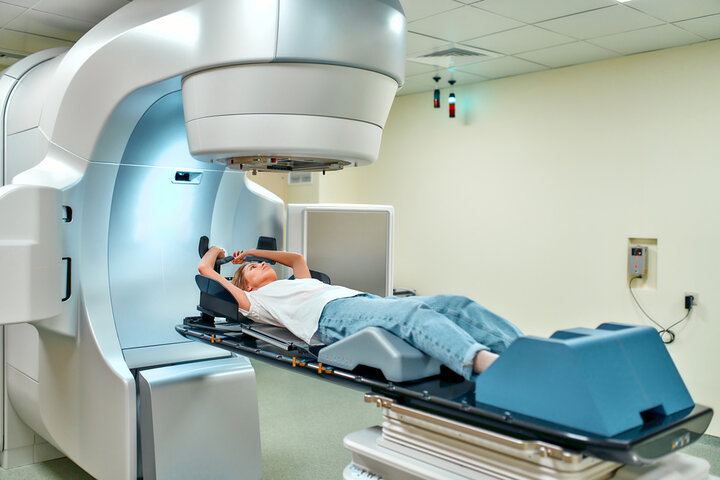
Today Marks the 25th World Cancer Day – How Can Cancer Risk Be Reduced?
Today is the 25th anniversary of World Cancer Day, an awareness day initiated by the global cancer organization UICC to bring one of the most common causes of death into public focus. Many organizations and countries observe World Cancer Day, with numerous informational events taking place today to promote cancer prevention and treatment. Few diseases are as well-known or as feared as cancer. According to the German Cancer Aid, 500,000 people in germany are newly diagnosed with cancer each year, and four million people live with the disease—while 40 percent of cancer cases could be prevented through a healthier lifestyle. And this is one of the most important messages of World Cancer Day: We are not completely powerless against this disease!
There are many different types of cancer, and the disease can progress differently for each patient. The UICC’s motto for World Cancer Day over the next three years is: "United by Unique." This highlights the fact that while every cancer patient has their own unique story, they ultimately face the same challenge. The goal must be to support all patients through ever-improving diagnostic tools and medical measuring devices for early detection and to promote prevention by raising awareness and providing guidance on a healthier lifestyle to reduce cancer risk factors.
Cancer Risk Factors and Prevention Strategies
According to the German Cancer Research Center (DKFZ), at least 37 percent of all cancer cases can be attributed to avoidable risk factors. Smoking is particularly harmful, accounting for over 19 percent of cases. Right after that, unhealthy eating habits, obesity, and lack of exercise contribute to around six to eight percent of cases each. In contrast, environmental factors such as fine dust or exhaust fumes play a relatively minor role.
On this 25th World Cancer Day, it’s important to remember that all individuals have the power to reduce their own cancer risk. Adopting healthier lifestyle habits doesn’t have to be as difficult as it might initially seem. There are plenty of tools and resources available to support healthier eating and increased physical activity—and even in our own product range, we offer many items that can help with this goal.
Prevent Cancer Through Better Nutrition and Buy Vitamin Complexes
Too many people follow an unhealthy diet, thereby increasing their risk of cancer. Many adults have been experiencing serious vitamin deficiencies for years. If maintaining a vitamin-rich and healthy diet feels challenging, an easy solution is to simply buy vitamins. The Medicalcorner24 range includes a wide selection of dietary supplements to help balance deficiencies in vitamins, minerals, or anti-inflammatory fatty acids like Omega-3.
The vitamin complexes available at Medicalcorner24 do not require a prescription. However, we still recommend consulting your doctor before taking dietary supplements regularly. This will help determine which vitamins you should take and ensure compatibility with any medications you may already be using. Additionally, it is important to avoid an excessive intake of certain minerals or vitamins. Keep in mind that the goal is always to meet your individual vitamin and nutrient needs, and proper nutrition is just one factor in cancer prevention. It should be complemented by an active and mobile lifestyle.
Preventing Cancer Through an Active Lifestyle, Sports, and Exercise
A physically active lifestyle with sports and exercise has been proven to help prevent cancer and other diseases. Moreover, physical activity and exercise therapy have also been beneficial in the recovery process after overcoming cancer. On the occasion of World Cancer Day, we want to emphasize once again that it is never too late to start taking care of your physical fitness, regardless of age or circumstances. Exercise strengthens the heart and circulatory system, helps regulate blood sugar levels, boosts the immune system, and benefits mental health. All these factors contribute to preventing cancer or overcoming it. Regular physical activity can start with daily walks or simple exercises at home.
In the therapy supplies section at Medicalcorner24, you will find a wide range of high-quality sports equipment designed to make it easier to start a healthier lifestyle. Fitness and therapy bands offer a unique way to build muscle while protecting joints and tendons—ideal for those starting "from scratch." Of course, the MC24 shop also carries classic dumbbells and weights. Gymnastics balls and rings make training for mobility and coordination enjoyable, while padded exercise mats provide a comfortable surface for floor exercises. Additionally, you can find specialized training equipment such as hand trainers for improving grip strength and balance trainers for enhancing stability.

Cancer Screening: Which Examinations Should You Have Regularly?
While 20th-century doctors often detected cancer at a late stage, today's state-of-the-art diagnostic tools and medical measuring devices enable the early detection of nearly all types of cancer. Ideally, even pre-cancerous stages can be identified, allowing doctors to prevent the disease from developing. General practitioners can conduct early screening checks to assess cancer risk or suspicion and recommend further tests. More specialized early detection examinations should be performed by medical specialists—especially if you have a family history of cancer. The following cancer screening tests are among the most frequently recommended:
- Skin Cancer Detection: Dermatologists perform regular skin screenings, examining the entire skin surface and assessing moles for potential malignancy. Advanced dermatoscopic techniques allow the early detection of melanoma and other skin cancers before they become critical.
- Breast Cancer Detection: One of the most common cancers among women, breast cancer can be tested for in gynecological practices. If detected early, the chances of recovery are often high. Gynecologists can also conduct screenings for cervical cancer, ovarian cancer, and other female-specific cancers.
- Colorectal Cancer Detection: Gastroenterologists specialize in the digestive tract and can identify early stages of colorectal cancer through colonoscopy. Early screenings can also help diagnose other common cancers like stomach cancer and pancreatic cancer.
- Bladder and Kidney Cancer Detection: Urologists offer screenings to detect cancers in the bladder and kidneys at an early stage. They are also the specialists for detecting prostate cancer, which affects only men.
- Lung Cancer Detection: Not only heavy smokers but also individuals exposed to workplace-related risk factors may have a higher risk of developing lung cancer. Pulmonologists offer early detection tests for this type of cancer.
- Head and Neck Cancer Detection: Cancers of the larynx, esophagus, trachea, and throat fall under the expertise of ENT (ear, nose, and throat) specialists. Regular check-ups with these doctors are recommended for the early detection of cancers in the head and neck region.
The Medicalcorner24 online shop is well-stocked with modern diagnostic tools for use in medical practices and hospitals. Diagnostic devices such as ECG machines with accessories, blood glucose monitors, pulse monitors, blood pressure monitors, scales, and stethoscopes allow for the monitoring of all essential body functions.
With high-magnification and illuminated dermatoscopes, even the tiniest moles can be examined for skin cancer. Various laboratory media are available for culturing samples for further analysis. Additionally, MC24 offers essential consumables like ultrasound gel, electrode gel, contact sprays, and lubricants, which are necessary for various examinations. Anatomical models, posters, and other educational materials also play a crucial role in helping patients understand where cancer can develop in the body and how treatments or preventive measures might impact their health.
We wish you an informative World Cancer Day and the best of health – take care of your health, diet, and physical activity, participate in preventive screenings, and hopefully, may you be spared from this terrible disease forever!



